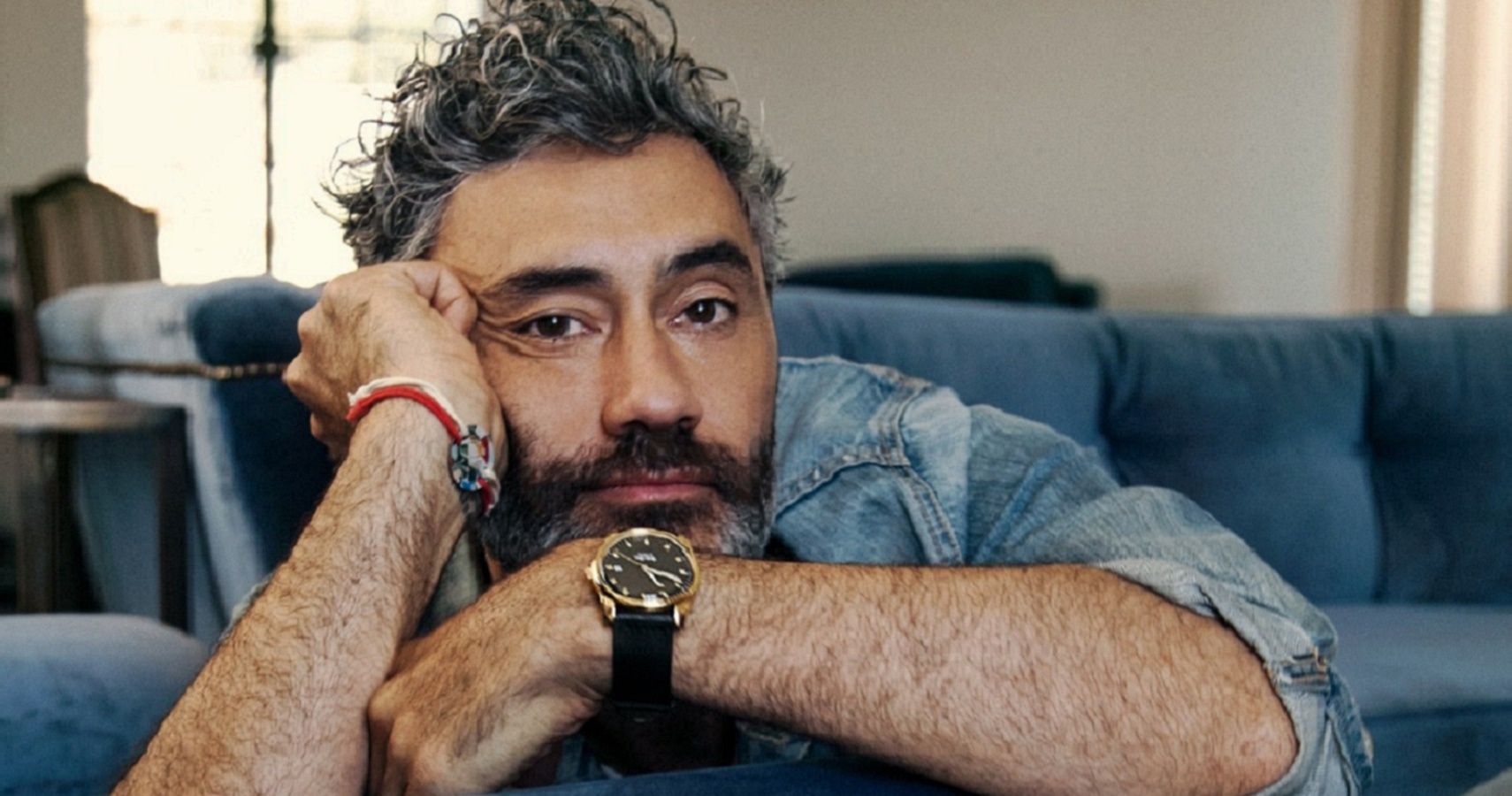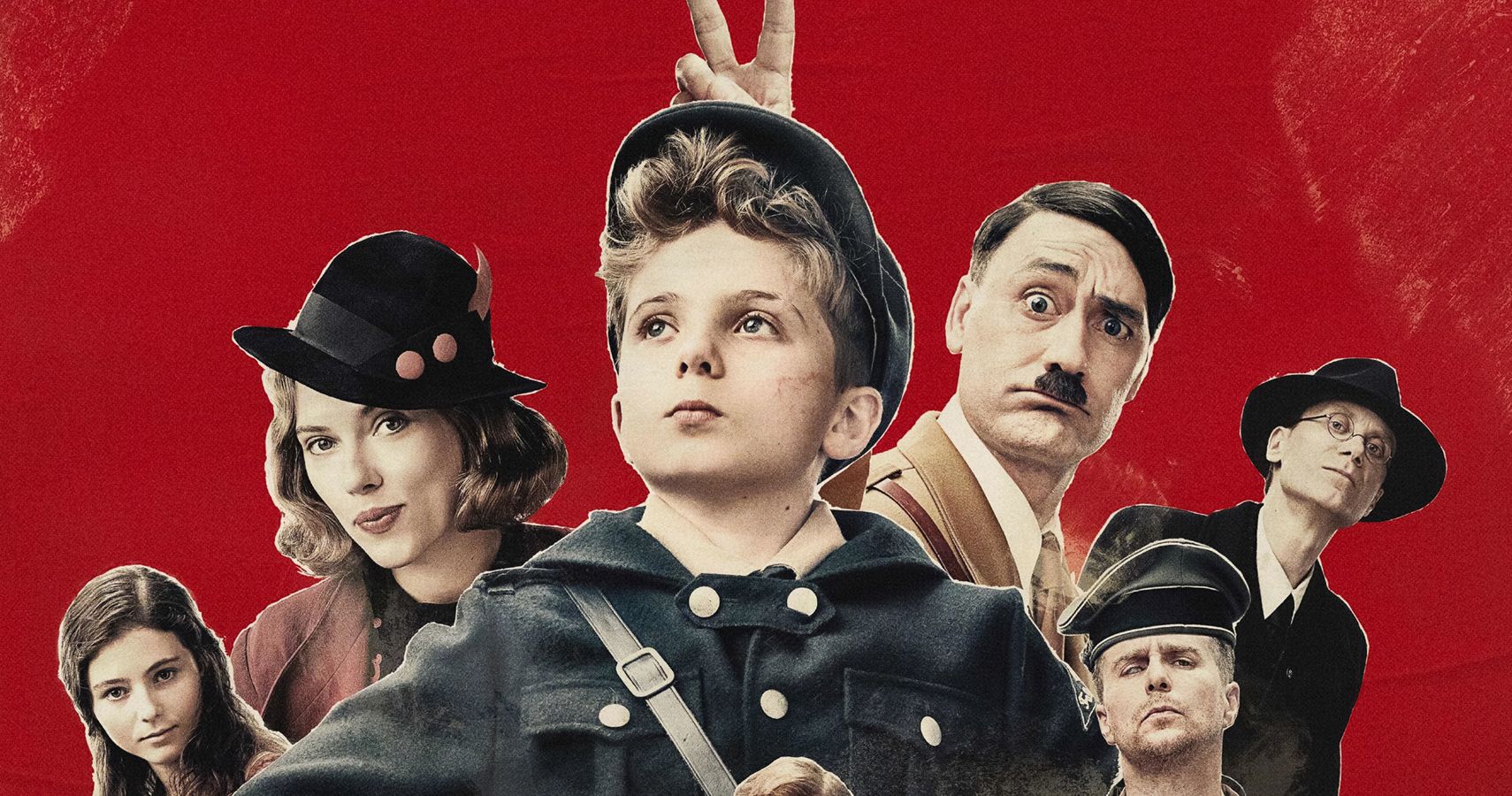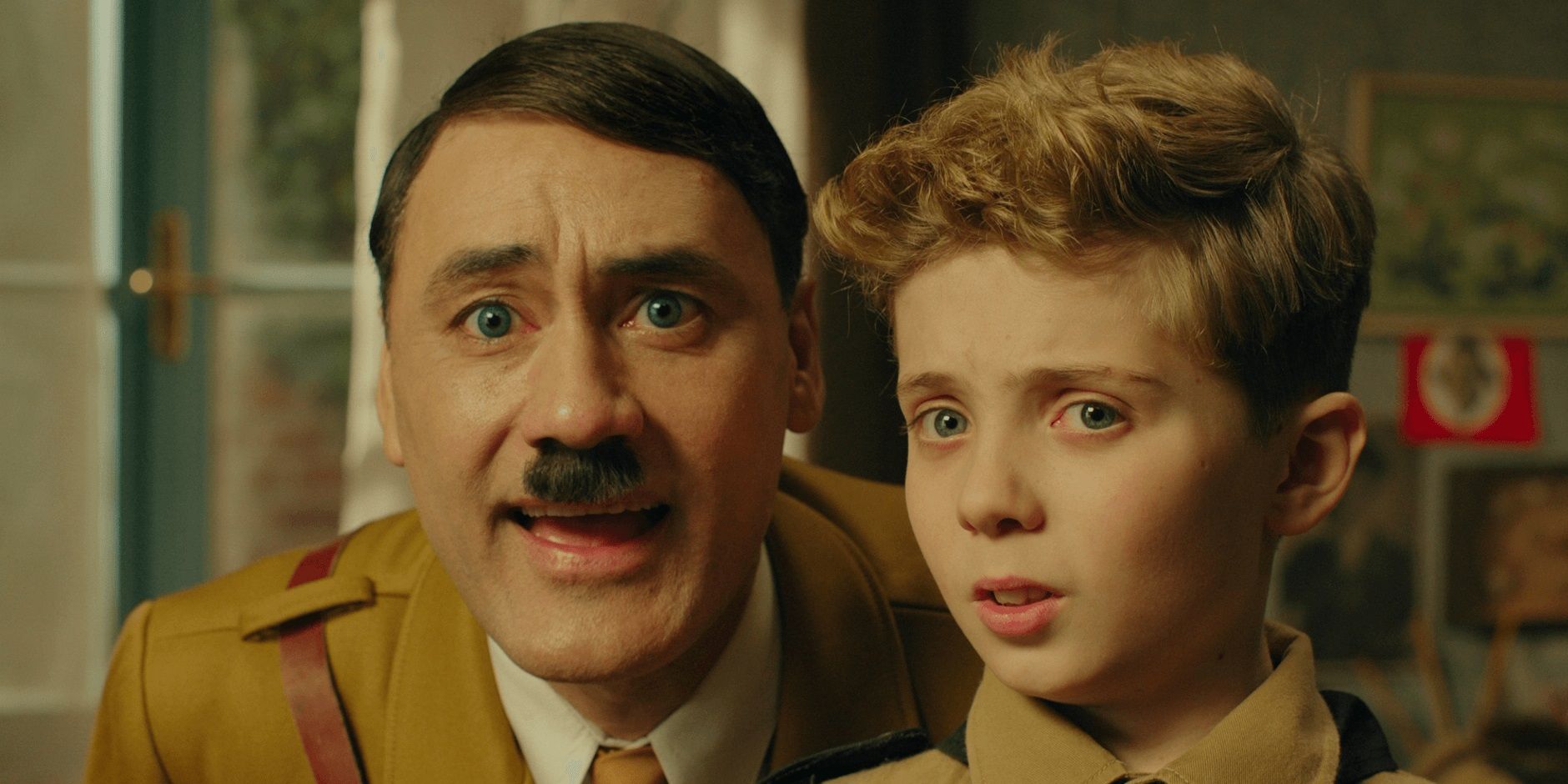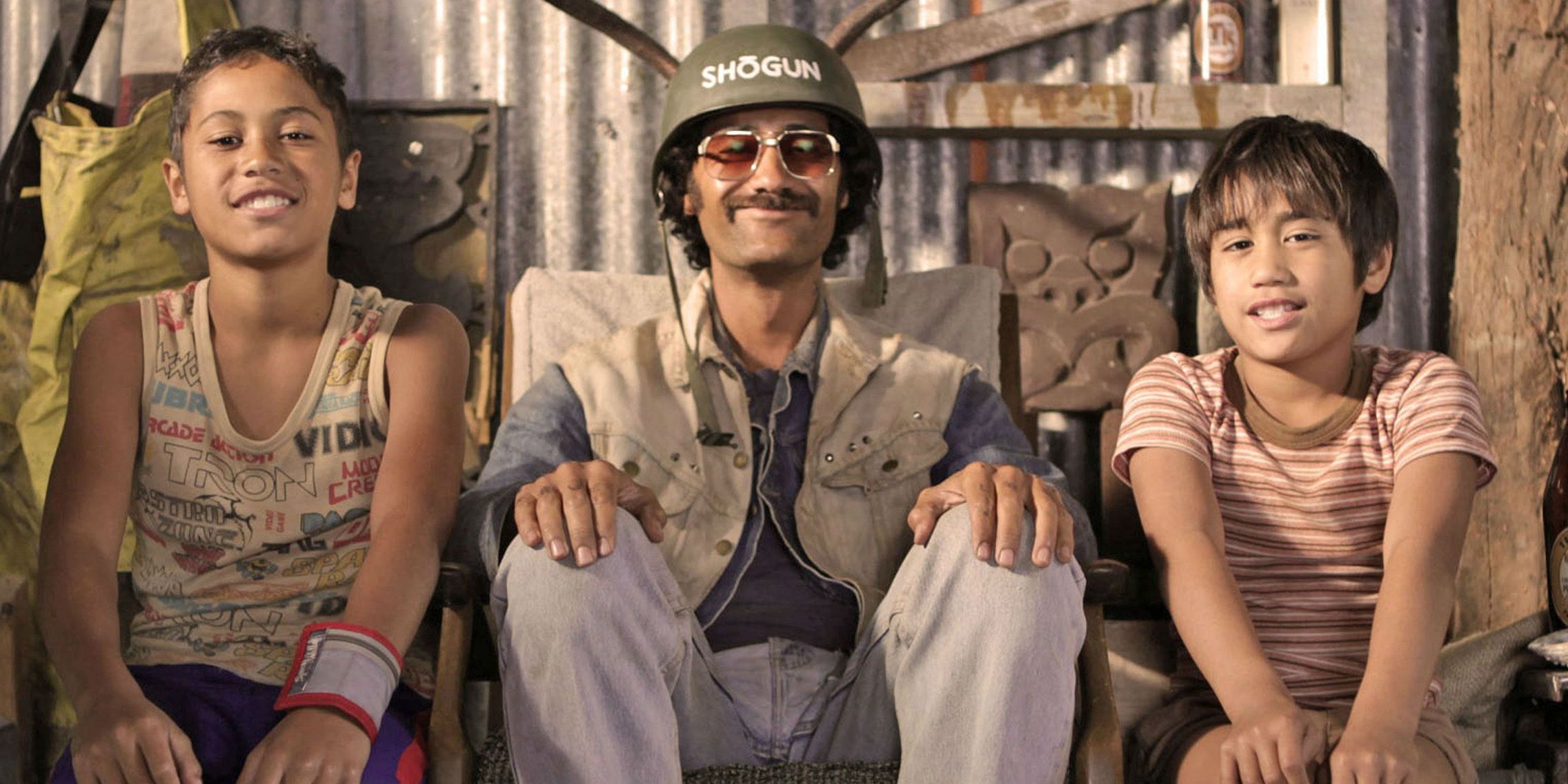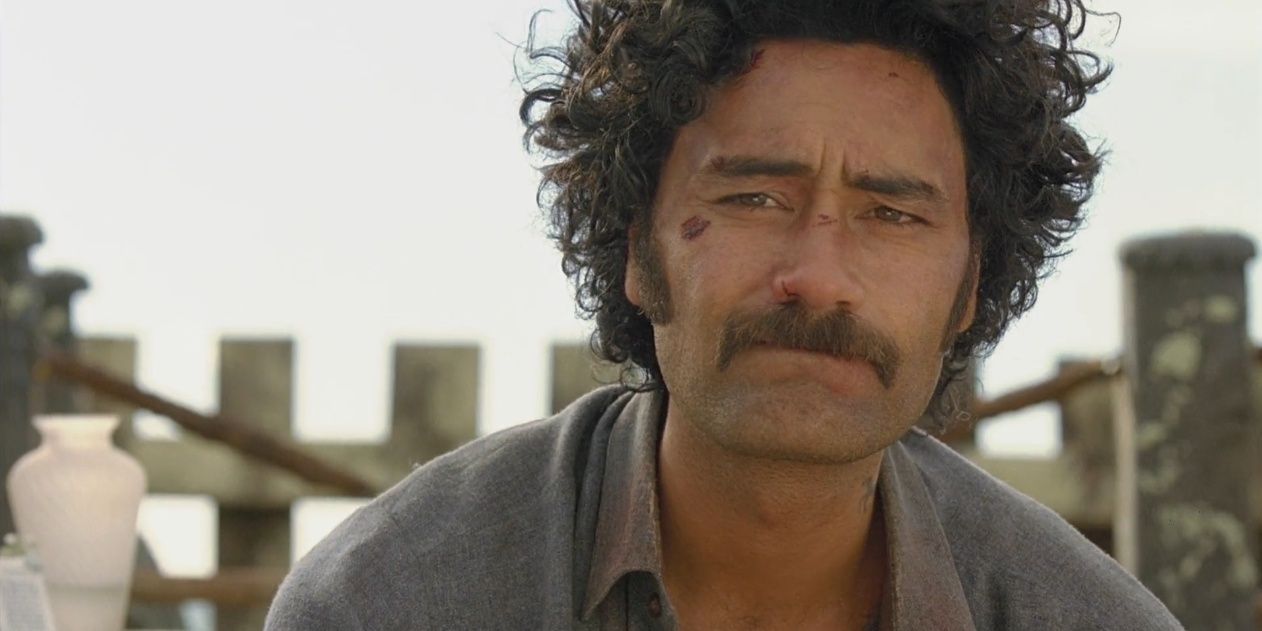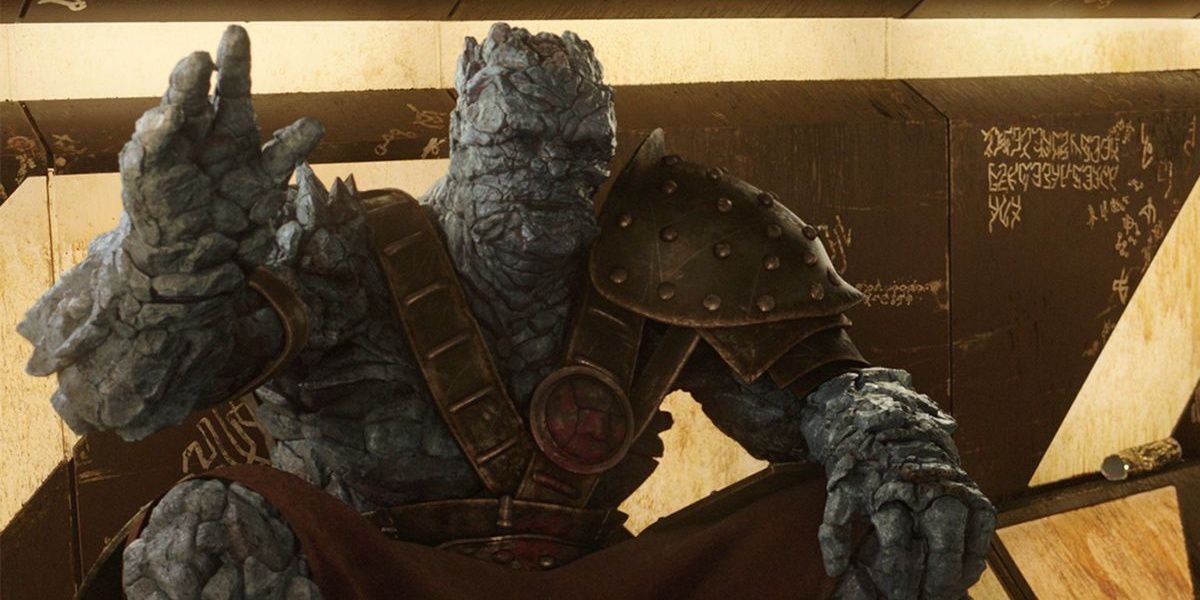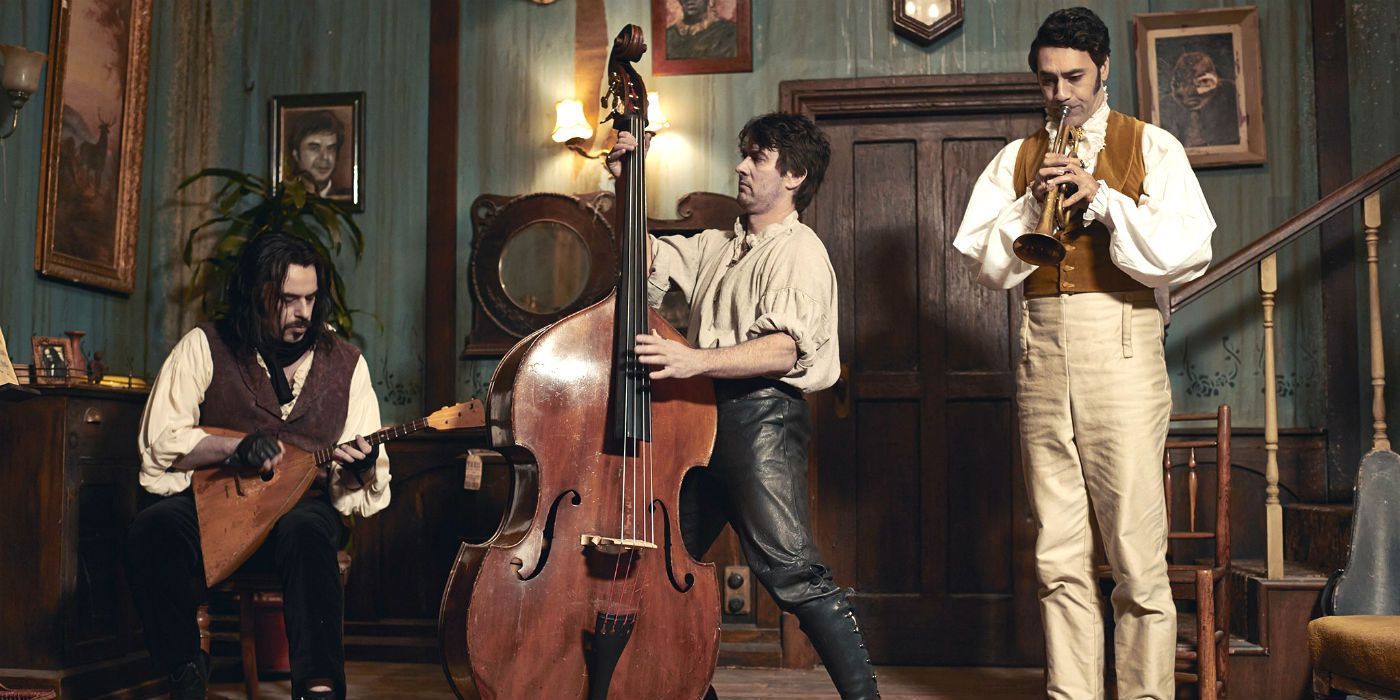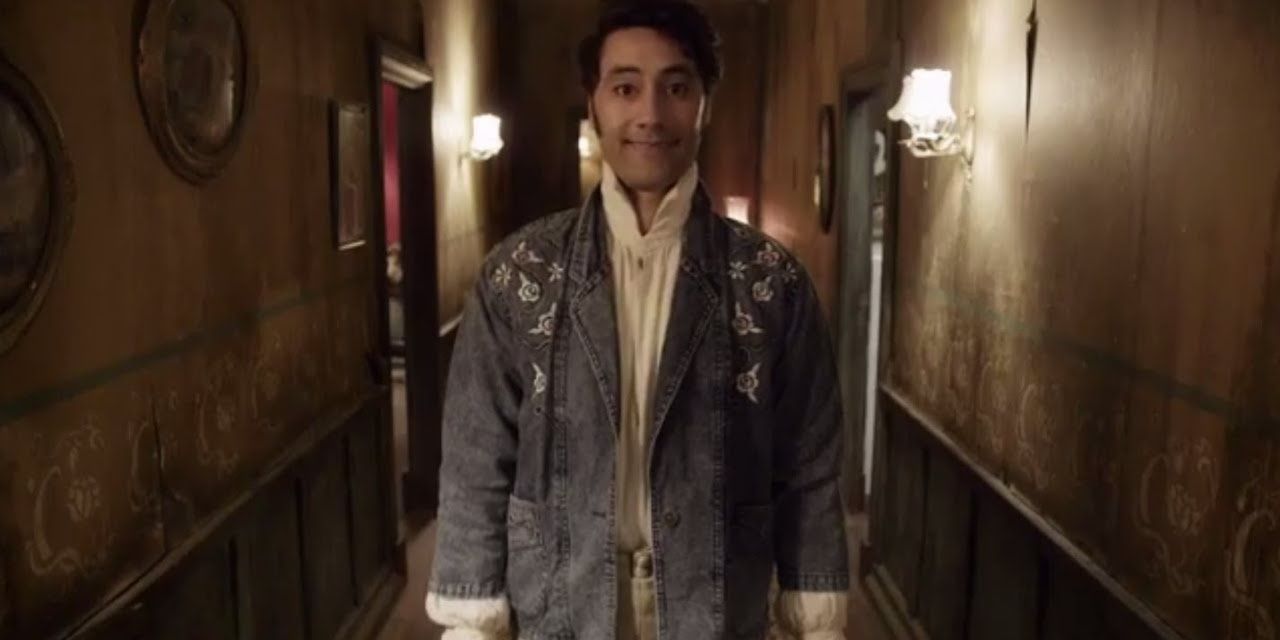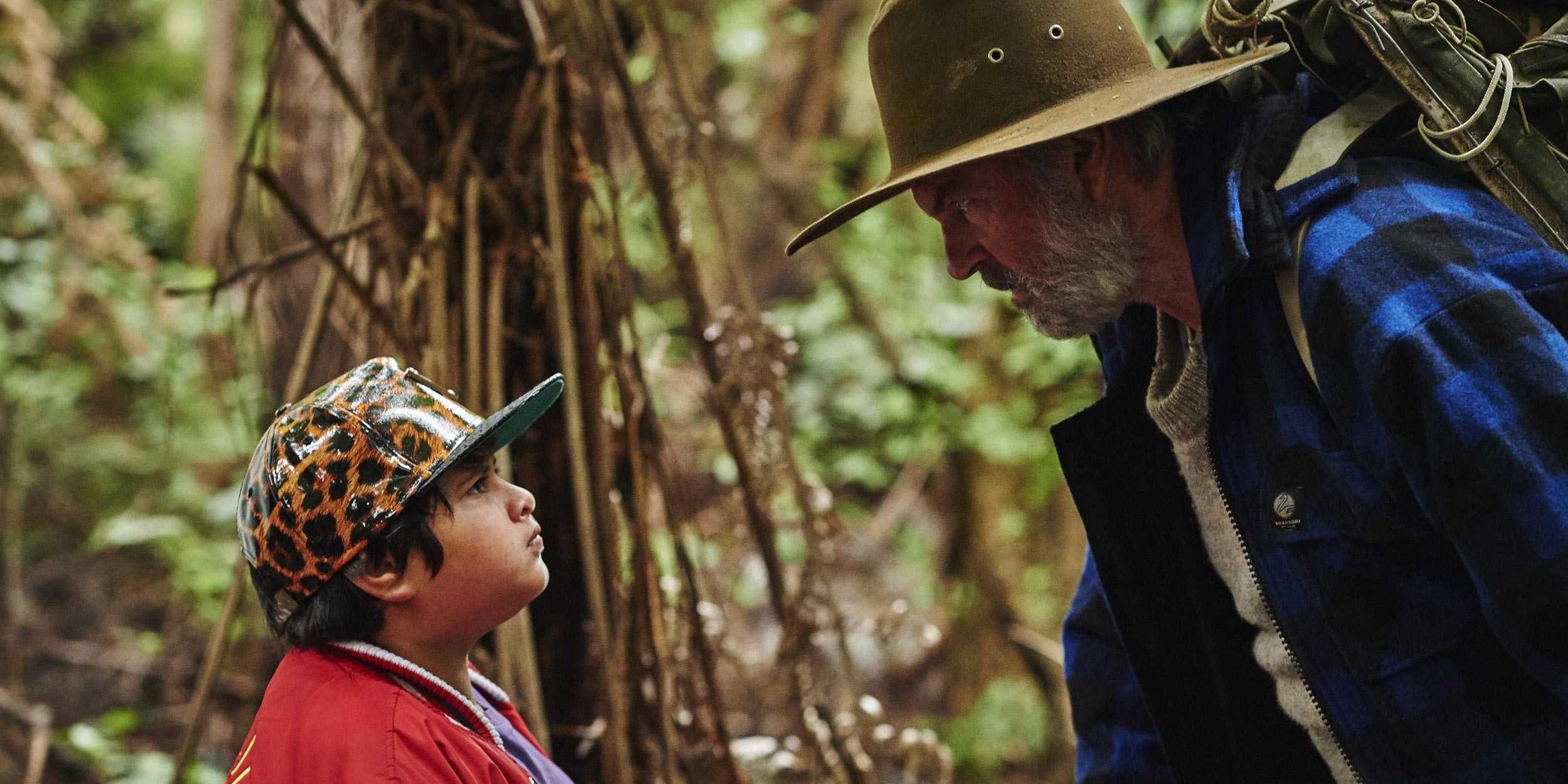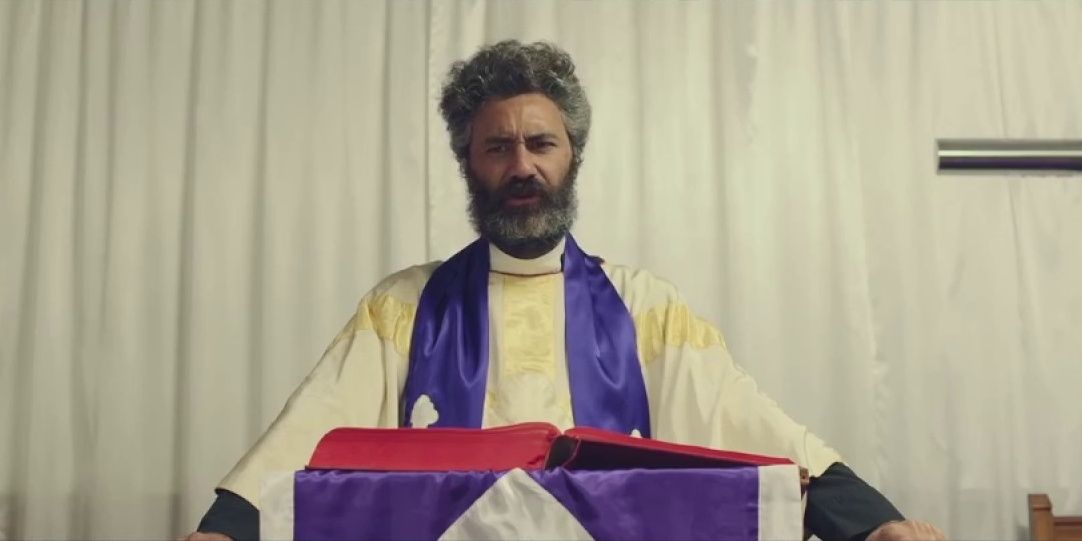Pineapple laden shirts and endless charm aren't the only things that New Zealander Taika Waititi has a serious penchant for, he's also a seriously talented writer and director with some comedic acting chops to boot. Over the course of his career, Waititi has honed in on exactly what makes happy-sad cinema so emotionally impactful, while carving out quite an unusual career path for himself.
By walking a fine line between comedy and tragedy he's inspired somewhat of a quiet revolution, as his filmmaking approach has bled into Hollywood Blockbusters. Look no further than his entry in the MCU (Thor: Ragnarok) and how Marvel's approach to character changed going forward to see his brand of blending comedy and pathos taking a hold on Hollywood. Over a prevalent career, he's built quite the portfolio of work, but how is it all ranked according to Rotten Tomatoes?
Jojo Rabbit (2019) - 80%
Jojo Rabbit is cinematic whiplash used in the best kind of way. Revolving around a young boy in the Hitler Youth who's so indoctrinated his imaginary friend is Hitler. The boy then discovers his mother is hiding a young Jewish girl in their attic. It's a brilliant blend of irreverent humor, idealistic deconstruction, and bitter-sweet character moments.
Carrying an anti-hate message that needs to be heard, Jojo Rabbit delivers it with teeth-rattling love and hilarious gusto. While it might not be for everyone, disregarding some historical accuracy in exchange for more effective drama and a sharper edge to its already powerful themes, it's definitely a film you should experience for yourself.
Hitler (Jojo Rabbit)
Off to a good start, Taika Waititi plays Hitler in Jojo Rabbit. Famously, he spent zero amount of time researching for his interpretation of the historical dictator, telling Deadline, "I just made him a version of myself that happened to have a bad haircut and a sh***y little mustache."
He went on the explain that if he had played the real version of Hitler it would have been weird and detracted from the story he was trying to tell. After all, he's not really playing Hitler here, its an indoctrinated child's imaginary version of Hitler.
Boy (2012) - 87%
A heartwarming coming of age film that really cemented what Waititi's style would be going forward, it's not just a love letter to New Zealand, but also one to the magic and wonder of being a child. It focuses on a boy who believes his estranged father to be a heroic deep-sea diver that's a close relation to Michael Jackson.
In reality, his father has been absent because he's been in prison for robbery. Boy's reliance on the image of his heroic father had helped him get by without a father figure in his life, when he's confronted with the disappointing reality it proves hard to deal with. While that might sound an utter downer, there's actually a lot of whimsey here, making it a standout of happy/sad cinema.
Alamein (Boy)
Alamein is an absentee father and a petty criminal, the kind of guy that spends several years in prison and then returns to his children's lives with reckless abandon. Waititi really chews the scenery at times during the film, waxing poetic about his less than impressive gang, and his stolen stash of money buried somewhere he can't remember.
Funnily enough, Boy, the film in which Waititi plays Alamein, had to find its setting in the 1980s because Waititi, also the writer/director, had no idea how to write dialogue for modern young people.
Thor: Ragnarok (2017) - 93%
By the end of 2016 many complaints had begun to circulate about the MCU, from its overuse of grey/blue color grading to its overreliance on what had been dubbed "The Marvel Formula." So, when Taika Waititi was announced to be helming the third Thor installment, you can be sure those familiar with his work were smiling to themselves because they knew something everyone else didn't.
A bombastic, colorful, hilarious, and ultimately very human take on the God of Thunder, this soft reboot not only course-corrected one of the weaker franchises under the MCU banner, but sparked some new soul into how Marvel films as a whole approached the human side of their larger than life characters.
Korg (Thor: Ragnarok)
It should feel a lot weirder having an absurdist comedic character like Korg in a blockbuster sci-fi like Thor: Ragnarok, but he fits so perfectly and steals every scene he's in so well that he's very quickly become a fan favorite.
Waititi actually revealed that Korg was based on New Zealand nightclub bouncers, "giant hulking dudes" with delicate and eloquent voices. While you wouldn't say it to their faces, it turns out those bouncers made the perfect inspiration for a comedic sidekick.
What We Do In The Shadows (2014) - 96%
Screenwriter, director, and member of the core cast, Waititi has crafted a satirical horror classic with What We Do In The Shadows. It takes the typical vampire lore we're all familiar with from Nosferatu to Dracula and even a little Twilight and mixes it in with a mockumentary style and dry humor not dissimilar to The Office.
A quick barometer for how great this film is: upon release vampire fatigue had very much set in, Twilight had just wrapped up and Dark Shadows had left viewers feeling luke-warm, then What We Do In The Shadows was lorded as the best comedy of the year. It's really that hilarious whether you're a vampire fanatic or just a comedy junkie.
Viago (What We Do In The Shadows)
Before he was bitten, Viago was a dandy from the 18th century who traveled to New Zealand in search of his lady love. Now a 379-year-old vampire he's the vampire in the social middle of the flat he shares with three other vampires of varying ages and origins in Wellington.
What We Do In The Shadow was a film that took 9 years from its conception to actually being released, a slow burn from the creative duo of Taika Waititi and Jemaine Clement, both of which play Viago and Vladislav respectively. Going from short film to feature, apparently the "ghost cup" joke was one of the only carryovers between the two incarnations, Waititi admitted in an interview with Empire.
Hunt For The Wilderpeople (2016) - 96%
Put simply, this film is the shining example of Waititi's approach to narrative, comedy, and cinema. Showing off the gorgeous New Zealand countryside and its Waitakere Ranges, while honing in on the incredibly human flaws and inherent hilarity of the relationship between gruff Uncle Hec (Sam Neill) and his new adopted son, Ricky (Julian Denison).
The film constantly jumps between comedy that's rooted in the deepest human aspect of its characters and personal world-shaking tragedy. When the film comes to its finale it takes all of the energy it used to endear us to its characters and uses it to gut-punch us with bitter-sweet sorrow, in true Waititi style.
The Minister (Hunt For The Wilderpeople)
Waititi appears in one of the funniest scenes in Hunt for the Wilderpeople, as he is wont to do, in the role of the Minister at the local church. He delivers an unhinged and meandering monologue about the nature of doors and candy being behind doors and how somehow ignoring candy and opening more doors is the way to find Jesus.
It wouldn't surprise us if the whole speech was just a riff between takes that everyone on set found so amusing that it made it into the final film. Of course with all of Waititi's work, the scene is given dramatic underlining as Uncle Hec walks out on his late wife's funeral, frustrated by the sermon.

